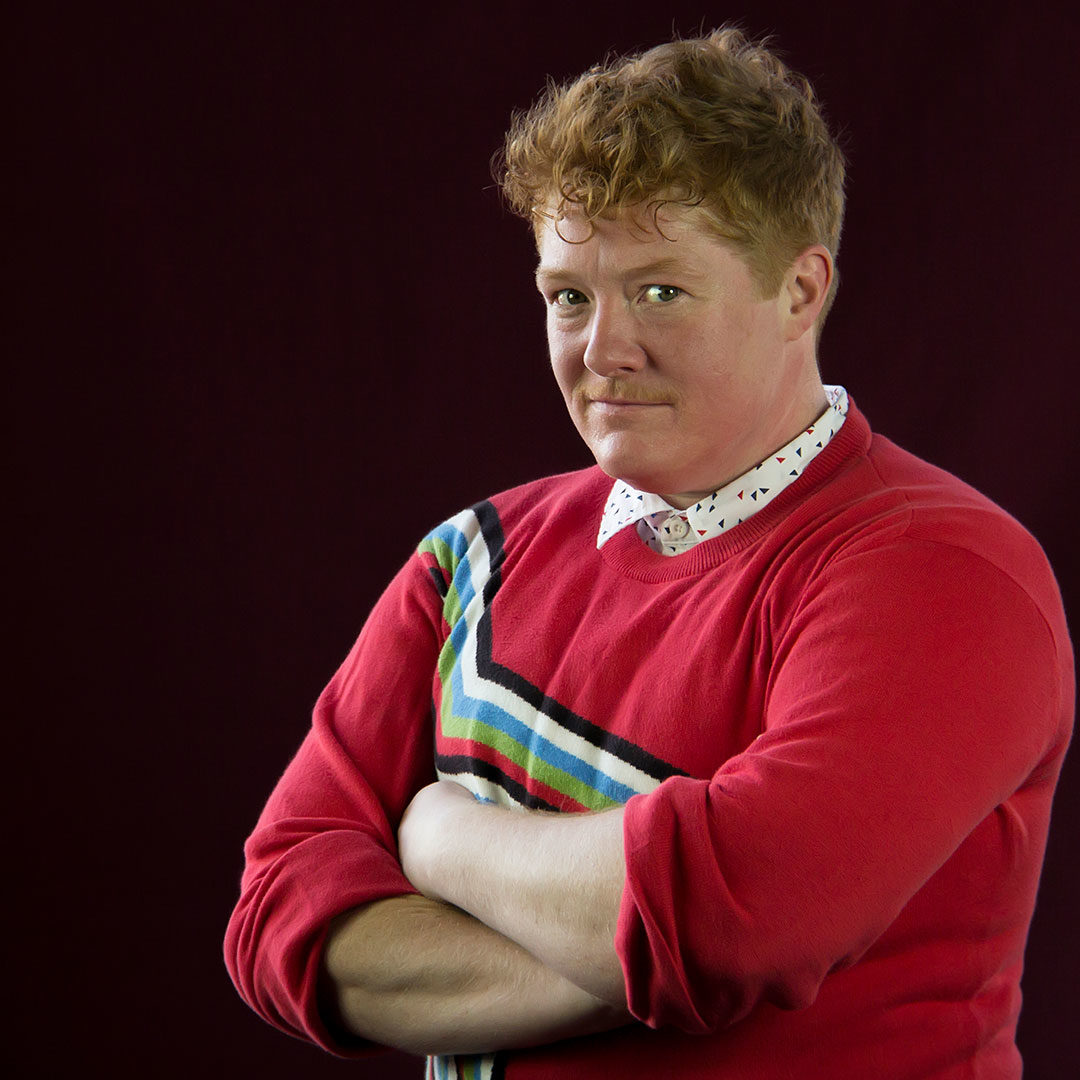This is the third installment of the Michigan Review’s coverage of No Safety Net — a series of provocative theatre performances hosted by the University Musical Society drawing diverse communities together to discuss and re-examine social issues.
As part of their “No Safety Net” series, which aims to “create a community platform for important dialogue,” the University Musical Society recently hosted They, Themself, and Schmerm, a stand-up comedy by trans actor Becca Blackwell. Blackwell, who identifies as a “trans, non-binary, butch, masculine person with a vagina,” confronted experiences implicating identity over the course of the 70-minute performance.
Despite billing itself with a “trigger warning,” Blackwell’s performance left the audience largely at ease while discussing the topics of gender and sexuality. Although often described in graphic terms, Blackwell’s accounts of grappling with gender identity as both an adolescent and adult, experiencing both men’s and women’s restrooms, taking testosterone, and using the app Grindr while in an open relationship, often left the audience comfortable with the discussion, despite their seemingly controversial nature. Perhaps this can be credited to Blackwell’s humor or confidence on the stage; even while discussing the death of a parent and an attempted suicide, there was no apparent “discomfort.”
It could be argued that joking about traumatic experiences provides a sense of agency over the experience for the victim, but in the context of a performance, it seemed to force out the message: “Here’s my awful experience, isn’t it funny?”
Blackwell’s charm helped guide the audience through these various issues, but there were undoubtedly parts of the performance that were jarringly awkward. At one point, Blackwell scoped out a male-volunteer and sat on his lap. After a brief exchange of words, the two sat in complete silence. This part of the performance left pained and awkward expressions on audience members as they craned their heads around the room to see if others felt a similar uneasiness. It is interesting to note that this moment of open intimacy left many audience members feeling clearly uncomfortable, while discussions of suicide and gender identity did not.
Aside from this moment of awkwardness, other comments from the performer seemed disturbing, as Blackwell’s attempts to address traumatic memories with off-the-cuff humor fell short. Throughout the performance, Blackwell recounted experiences of molestation as a child. This alone was unsettling, but Blackwell also stated: “I was molested, but who wasn’t in the 70’s?” Blackwell took the hyperbolic joking further, insinuating that being molested at the time was a sign of being “cute.”
I am unsure of the upside of minimizing an experience that so many people view as abhorrent. It could be argued that joking about traumatic experiences provides a sense of agency over the experience for the victim, but in the context of a performance, it seemed to force out the message: “Here’s my awful experience, isn’t it funny?”
Given these different components of the performance, They, Themself, and Schmerm seems to be a perfect fit for the “No Safety Net” series. While I felt that the discussion surrounding gender and sexuality was not particularly startling, as Blackwell provided glimpses of these often outlandish experiences within the context of self-reflection and humor, another audience member may have found the same stories to be unusual and bizarre . And while I felt that the discussion surrounding molestation was unnecessarily comical, another audience member with similar experiences to Blackwell may have found it reassuring to watch someone discuss their trauma on stage with ease. In this way, the performance pushed the boundary of dialogue surrounding these issues.
